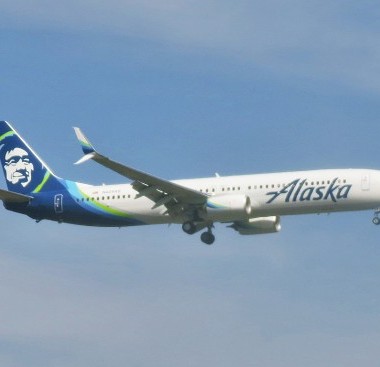FAA chief vows to hold Boeing accountable for quality lapses
The Federal Aviation Administration’s top official will pledge to hold Boeing Co. accountable for any quality lapses as the agency examines the US planemaker’s manufacturing processes following a near-disaster on an Alaska Airlines flight last month.
“Let me stress: we will follow the data and take appropriate and necessary action,” FAA Administrator Mike Whitaker will tell lawmakers, according to prepared remarks released before his appearance Tuesday on Capitol Hill.
He added that the agency will have “more boots on the ground” to monitor Boeing’s factories, saying the FAA “will consider the full extent of our enforcement authority to ensure Boeing is held accountable for any non-compliance.”
Whitaker, who took the helm in October, is set to testify before the House Transportation and Infrastructure Committee. The mid-air structural blowout on the Boeing 737 Max 9 has dominated his tenure to date, leading the agency to step up its scrutiny of Boeing and its suppliers, and to bar the planemaker from increasing deliveries until quality improves.
The agency expects to have enough data from an investigation launched after the accident to make initial recommendations as soon as late February, the FAA said on Monday.
Boeing has had a series of manufacturing glitches with the Max through 2023 which culminated in the near-catastrophic panel blowout on the Max 9 on Jan. 5. The National Transportation Safety Board is probing the cause of the failure, and its preliminary report is imminent.
This past weekend, Boeing found more mistakes with holes drilled into the fuselage of its 737 Max jets, threatening to slow deliveries further. Shares of the planemaker have declined 21% this year through Monday, the biggest drop among members of the Dow Jones Industrial Average. They slipped less than 1% in premarket US trading.
Whitaker, a former airline executive, worked to modernize the US air-traffic control system in a previous FAA stint that ended in 2016. He now faces a grilling by lawmakers on his agency’s oversight of Boeing, which was stepped up after the 737 Max model was involved in two fatal crashes in 2018 and 2019.
He plans to tell lawmakers that the FAA is encouraging Boeing employees to “use our FAA hotline to report any safety concerns,” according to the prepared testimony.
Whitaker will also discuss safety concerns including close calls, serious runway incursions and air traffic controller workforce issues. An independent safety review team made a number of recommendations last year, including working to reduce ATC staff shortages. It said outdated technology was one of the biggest risks to safety.
The FAA is committed to deploying technologies to improve surface surveillance and situational awareness for controllers, flight crews and ground personnel, including through “surface lighting, visual and aural alerts, and enhanced displays,” Whitaker will say.
Similar Stories

Citywide sale-leaseback highlights Phoenix Airport submarket
View Article
Carrier executive sees window for innovation and collaboration
View Article
Silk Way Alat Free Economic Zone Company and Modern Construction Group sign landmark agreement
View ArticleCPaT announces new contract with expanding airline, Blue Jet Airways KG
CPaT Global, the world’s leading provider of distance learning for the airline and aviation industry, today announced a new contract with Blue Jet Airways KG. CPaT will provide Blue Jet…
View Article
Norse Atlantic expands to Stockholm with new direct flight to Bangkok
View Article
LATAM Cargo Group launches pioneering initiative in Chile with recycled plastic pallets
View ArticleGet the most up-to-date trending news!
SubscribeIndustry updates and weekly newsletter direct to your inbox!





